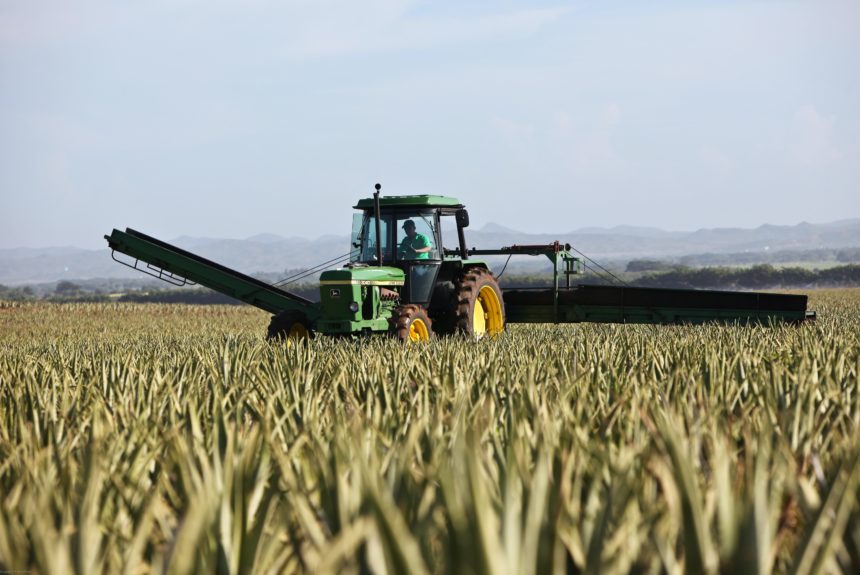A heat-treated seed treatment from Sweden is making waves in the agricultural industry. ThermoSeed, an all-natural, steam-powered seed solution, has become a favorite of farmers looking for an environmentally safe yet effective alternative to chemically treated seeds. The treatment differs from conventional seed solutions that have dominated the industry to date. ThermoSeed utilizes a technique that involves “bathing” seeds with high-temperature steam, which helps eliminate harmful pests and pathogens like fungi, bacteria, and insects while preserving the seeds’ integrity.
The non-chemical pest control method, invented by researcher Kenneth Alness in 2008, was inspired by the age-old technique of treating seeds with hot water, a common practice before the advent of BigAg in the 1950s. Before taking his invention to market, Alness tested his tailor-made steam seed “recipes” for nearly a decade. The initial results proved promising. ThermoSeed-treated crops in Europe saw a 5 to 10 percent higher yield than non-treated crops. In Mali, that number shot to 27%.
“We knew we had a new technology that could change agriculture,” Alness said.
In contrast to pesticides, which take a generalized approach to pest control, ThermoSeed’s technology is individually tailored to each seed batch. This is because different seed types require specific combinations of environmental conditions (e.g., humidity, temperature, and time) to achieve optimal health. This makes the treatment more costly upfront than tried-and-true chemical methods. After roughly seven years, and optimistically shorter as costs and technologies improve, the returns on investment for farmers outweigh the initial costs.
Since its inception in the late 2000s, the company estimates that ThermoSeed has prevented approximately two million liters of pesticides from entering the environment. However, it has only recently begun to penetrate the European market more significantly, despite its considerable success in the region (roughly 40 percent of certified seeds in Sweden and 50 percent of cereal seeds in Norway come from ThermoSeed). This growth is being driven by new European environmental and agricultural laws, including ambitious targets set under the 2020 European Green Deal, such as the EU Pesticide Reduction regulation, which aims to reduce the use and risk of chemical pesticides by 50% by 2030. In conjunction with the new legislation, a rising demand for natural foods has also been propelling growth as consumers become more conscious of their ecological footprint. In 2020, retail sales for organic products in Europe reached 52 billion euros, an increase of 14.9 percent over the previous year and the highest rate of growth since 2010 as shifts in consumer behavior highlight a growing demand for cleaner, pesticide-free food. Building on its achievements in Scandinavia, ThermoSeed is now setting its sights on expanding into Asia.
This year, ThermoSeed emerged as a finalist for the Curt Bergfors Food Planet Prize, the world’s most prestigious food-related environmental award. The company was selected as one of seven finalists among a list of more than one thousand. The nominations team selects recipients based on their commitment to effecting positive change in the global food system.
“ThermoSeed uses a unique method of pasteurizing seeds with hot steam, removing harmful fungi, bacteria, and insects without applying chemicals. This steam treatment is an alternative to synthetic pesticides and fungicides, which are one of the most harmful aspects of modern farming,” the committee said.
Alness sold the license to his technology to Lantmännen BioAgri in 2021, one of the nation’s largest agricultural cooperatives, responsible for managing up to half of Sweden’s seeds. He is currently working on developing a more affordable solution based on the same principles that can better serve up-and-coming markets and have global reach.
“There has been a huge change in people’s perception since the 1990s,” Alness says, emphasizing customers’ growing preference for climate-friendly products.
As organic farming becomes more mainstream and market demand for natural goods skyrockets, innovative solutions that can protect the environment while making farmers and consumers better off have enormous potential to transform the agrochemical sector and usher in a new era of sustainable farming.
The views and opinions expressed are those of the author’s and do not necessarily reflect the official policy or position of C3.
